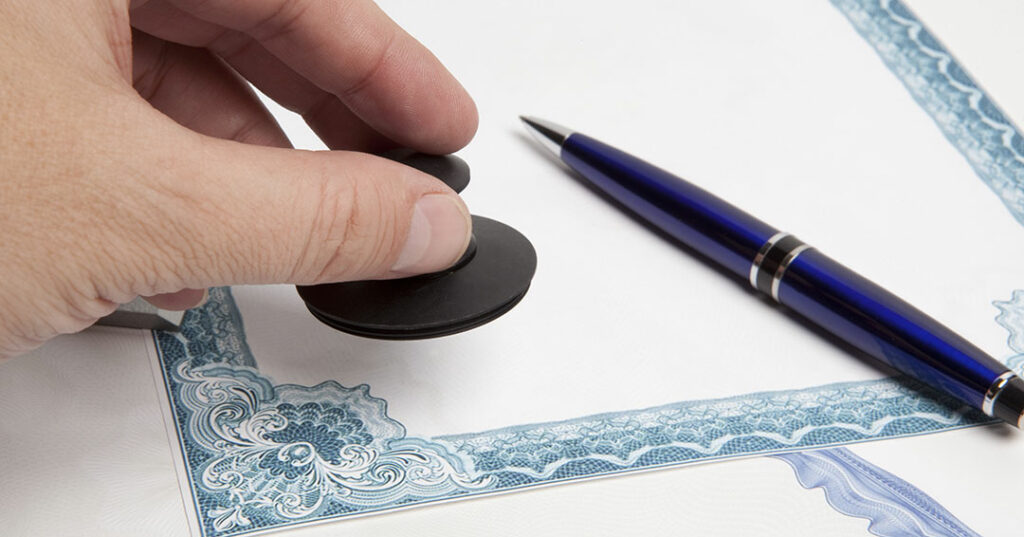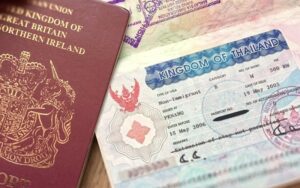Translation and Legalization in Thailand. In cross-border legal and administrative matters, the translation and legalization of documents are critical to ensuring the recognition, validity, and enforceability of foreign documents in Thailand and Thai documents abroad. These procedures are particularly relevant in matters involving immigration, marriage, litigation, property transactions, international trade, notarization, and business registration.
In Thailand, document translation and legalization are governed by a combination of domestic laws, ministerial regulations, and international conventions, particularly the Vienna Convention on Consular Relations. However, since Thailand is not a member of the Hague Convention Abolishing the Requirement of Legalisation for Foreign Public Documents (1961), the country relies on a full legalization process, which involves authentication by the Ministry of Foreign Affairs (MFA) and, in some cases, notarization or embassy attestation.
II. Legal Basis and Institutional Framework
The legalization of documents in Thailand is carried out in accordance with the following:
-
Civil and Commercial Code – governs the use and recognition of public and private documents in legal proceedings.
-
Ministerial Regulations on Consular Legalization – provide procedures for document authentication by the Ministry of Foreign Affairs.
-
Notarial Services Attorney Regulations (Law Society of Thailand) – regulate Thai lawyers certified to provide notarial functions.
-
Vienna Convention on Consular Relations – underpins consular authentication where needed.
The legalization process may apply in either of two directions:
-
Foreign documents to be used in Thailand
-
Thai documents to be used abroad
Each route follows a slightly different process, as detailed below.
III. Translation Requirements
Before legalization can occur, foreign-language documents must be translated into Thai for use in Thailand, and Thai documents must be translated into the relevant foreign language for use abroad.
A. Certified Translation
A translation submitted for legalization must be:
-
Accurate and complete
-
Typed or printed, not handwritten
-
Signed and stamped by a certified translator or translation company
While the MFA does not maintain a formal list of “official” translators, it does reserve the right to reject translations that are inaccurate or unclear. Many embassies and ministries keep informal lists of preferred or previously accepted translation service providers.
Common documents requiring translation include:
-
Birth certificates
-
Marriage and divorce certificates
-
Academic records and diplomas
-
Contracts and corporate documents
-
Criminal record checks
-
Court judgments
IV. Legalization of Foreign Documents for Use in Thailand
Foreign public documents (e.g., marriage certificates, academic diplomas, company registration documents) must undergo authentication and translation before being accepted by Thai authorities.
Step-by-Step Process:
-
Authentication by the Issuing Country
-
The foreign document must be certified by the appropriate authority in the country of origin (e.g., a national notary public, Department of State, or Home Ministry).
-
-
Legalization by Thai Embassy or Consulate
-
The Thai Embassy in the issuing country must authenticate the document. This typically involves:
-
Verifying the seal and signature on the document
-
Endorsing it with an embassy stamp and legalization certificate
-
-
-
Translation into Thai
-
Once in Thailand, the document must be translated into Thai.
-
The translation must match the original exactly and must include names, titles, and dates as rendered in Thai administrative style.
-
-
Submission to MFA Legalization Division
-
Both the original and the Thai translation are submitted to the Legalization Division of the Department of Consular Affairs, under the Ministry of Foreign Affairs in Bangkok or Chiang Mai.
-
MFA Requirements:
-
Application form
-
Original document + copy
-
Translated version + copy
-
Copy of passport or Thai ID of applicant
-
Fees (typically THB 200 per document for normal service, or THB 400 for expedited service)
Processing Time:
-
Standard: 3–5 business days
-
Express: 1 business day (limited availability)
Once legalized, the document is accepted by Thai government agencies, including the Immigration Bureau, Ministry of Education, Land Department, and courts.
V. Legalization of Thai Documents for Use Abroad
To use Thai-origin documents (e.g., birth certificates, educational transcripts, court orders) in foreign jurisdictions, they must be:
-
Certified and Translated
-
Thai documents must be translated into the official language of the receiving country.
-
The translation must be precise and include the translator’s signature.
-
-
Legalized by the MFA
-
The original document and its translation must be submitted to the MFA for legalization.
-
The MFA confirms the authenticity of the Thai seal and the authority that issued the original document.
-
-
Legalized by Foreign Embassy
-
The foreign embassy in Thailand (of the receiving country) must then authenticate the MFA’s seal and signature.
-
Some countries may also require notarization or apostille equivalents.
-
This multi-step process is essential for foreign nationals applying for marriage, residence, visa applications, or educational recognition in their home country based on Thai-issued documents.
VI. Notarial Certification and Its Distinction
Thailand does not have a centralized notarial profession akin to civil law jurisdictions. Instead, only licensed Thai attorneys who have been certified by the Law Society of Thailand may act as Notarial Services Attorneys.
Services Provided:
-
Witnessing signatures
-
Certifying true copies
-
Certifying translations
-
Drafting affidavits
-
Certifying documents for international use
However, notarization alone does not replace legalization. It is often a complementary step, used when a receiving authority abroad requires notarized documentation prior to consular legalization.
VII. Common Use Cases and Legal Implications
A. Immigration and Visa Applications
-
Spouses applying for marriage or dependent visas
-
Foreigners applying for retirement or long-stay visas
-
Thai nationals marrying abroad
B. Litigation and Court Proceedings
-
Use of foreign court judgments in Thai courts (requires certified translation and legalization)
-
Admissibility of evidence issued outside Thailand
-
Power of attorney and affidavits for cross-border litigation
C. Corporate Transactions
-
Company registration involving foreign directors or shareholders
-
M&A involving cross-border documents
-
Capital transfers or remittances requiring legalized shareholder resolutions or board minutes
D. Academic and Professional Recognition
-
Recognition of foreign degrees and transcripts
-
Application for teaching licenses, medical registration, or bar admission
Failure to legalize such documents can result in their inadmissibility or legal rejection by Thai authorities.
VIII. Limitations and Risk Areas
-
Falsified Translations: Submitting inaccurate translations, even unintentionally, can result in rejection or legal consequences.
-
Embassy Requirements Vary: Some foreign embassies in Thailand impose additional requirements beyond MFA legalization.
-
No Apostille Alternative: As Thailand is not a party to the Hague Apostille Convention, documents cannot be simplified through apostille and must undergo full legalization.
-
Changes in Regulation: MFA processing rules and service times are subject to policy shifts and may vary by document type or nationality.
IX. Conclusion
Translation and legalization in Thailand are mandatory legal steps when dealing with foreign documents intended for official use, or Thai documents meant for international jurisdictions. The process is strictly formalized, and failure to comply with procedural requirements may render a document legally ineffective.
Legal practitioners, businesses, and individuals involved in cross-border matters must ensure that all documents are accurately translated, authenticated, and legalized in accordance with Thai and international procedures. While the process may be bureaucratic, it serves a critical role in preserving documentary integrity, jurisdictional recognition, and legal admissibility.






















